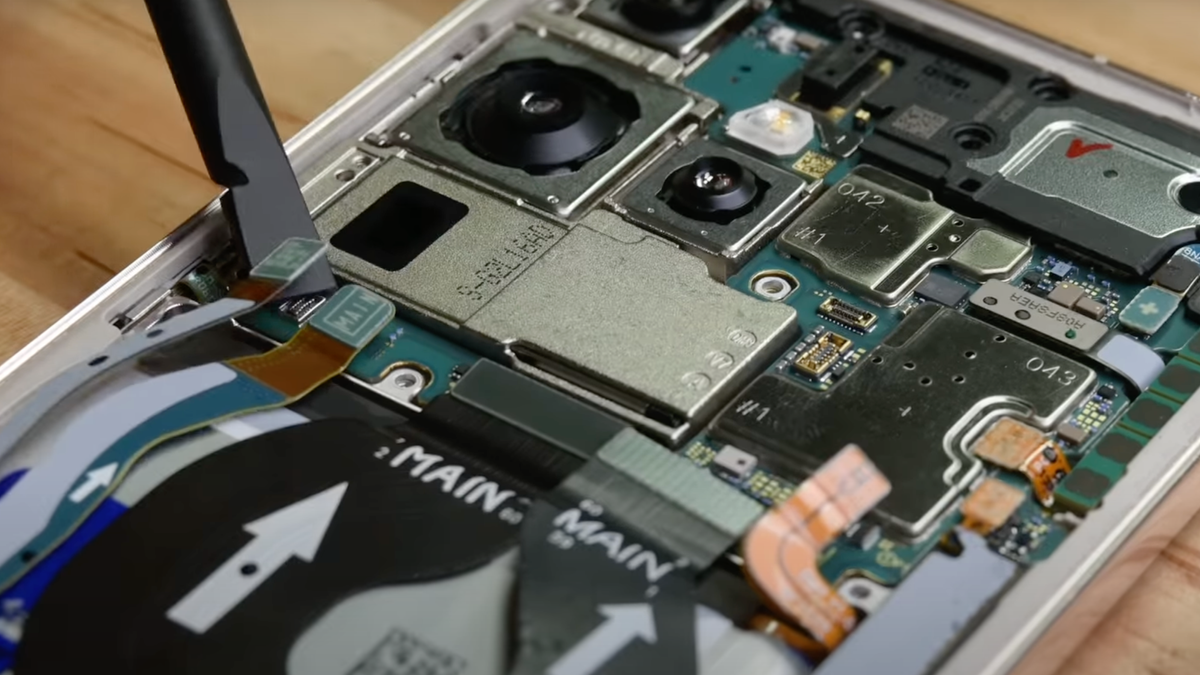In exchange for selling them repair parts, Samsung requires independent repair shops to give Samsung the name, contact information, phone identifier, and customer complaint details of everyone who gets their phone repaired at these shops, according to a contract obtained by 404 Media. Stunningly, it also requires these nominally independent shops to “immediately disassemble” any phones that customers have brought them that have been previously repaired with aftermarket or third-party parts and to “immediately notify” Samsung that the customer has used third-party parts.
[…]
The contract also requires the “daily” uploading of details of each and every repair that an independent company does into a Samsung database called G-SPN “at the time of each repair,” which includes the customer’s address, email address, phone number, details about what is wrong with their phone, their phone’s warranty status, details of the customer’s complaint, and the device’s IMEI number, which is a unique device identifier. 404 Media has verified the authenticity of the original contract and has recreated the version embedded at the bottom of this article to protect the source. No provisions have been changed.
The use of aftermarket parts in repair is relatively common. This provision requires independent repair shops to destroy the devices of their own customers, and then to snitch on them to Samsung.
[…]
People have a right to use third-party parts under the Magnuson Moss Warranty Act, for one thing, and it’s hard to square this contact language with that basic consumer right.”
[…]
The contract shows the incredible level of control that Samsung has over “independent” repair shops, which need to sign this agreement to get repair parts from Samsung. Signing this contract does not even make a repair shop an “authorized” repair center, which is a distinction that requires shop owners to jump through even more hoops.
[…]
“This is exactly the kind of onerous, one-sided ‘agreement’ that necessitates the right-to-repair,” Kit Walsh, a staff attorney at the Electronic Freedom Foundation and right to repair expert told me. “The data collection is excessive. I may not have chosen to disclose my address or identity to Samsung, yet an added cost of repair—even at an independent shop—is giving that information up. In addition to the provision you mentioned about dismantling devices with third-party components, these create additional disincentives to getting devices repaired, which can harm both device security and the environment as repairable devices wind up in landfills.”
[…]
The contract also functionally limits the types of repairs these “independent” repair shops are allowed to do and does not authorize the stores to do repairs that require soldering or so-called board-level repair, which are increasingly common types of repairs.
Independent repair shops are also required to get a certification from an organization called WISE, which costs $200 annually and is an arm of the CTIA, a trade group made up of wireless companies like Verizon and AT&T that has repeatedly lobbied against right to repair laws. In effect, independent shops are required to fund an organization lobbying against their interests.
In 2020, Motherboard obtained a contract that Apple required independent repair companies to sign in order to get repair parts from the company. At the time, experts said that Apple’s contract was problematic because it allowed Apple to audit and inspect the shops at any time. The Samsung document is even more onerous because it requires them to essentially serve as enforcers for Samsung and requires the proactive sharing of consumer data.
[…]

Robin Edgar
Organisational Structures | Technology and Science | Military, IT and Lifestyle consultancy | Social, Broadcast & Cross Media | Flying aircraft

